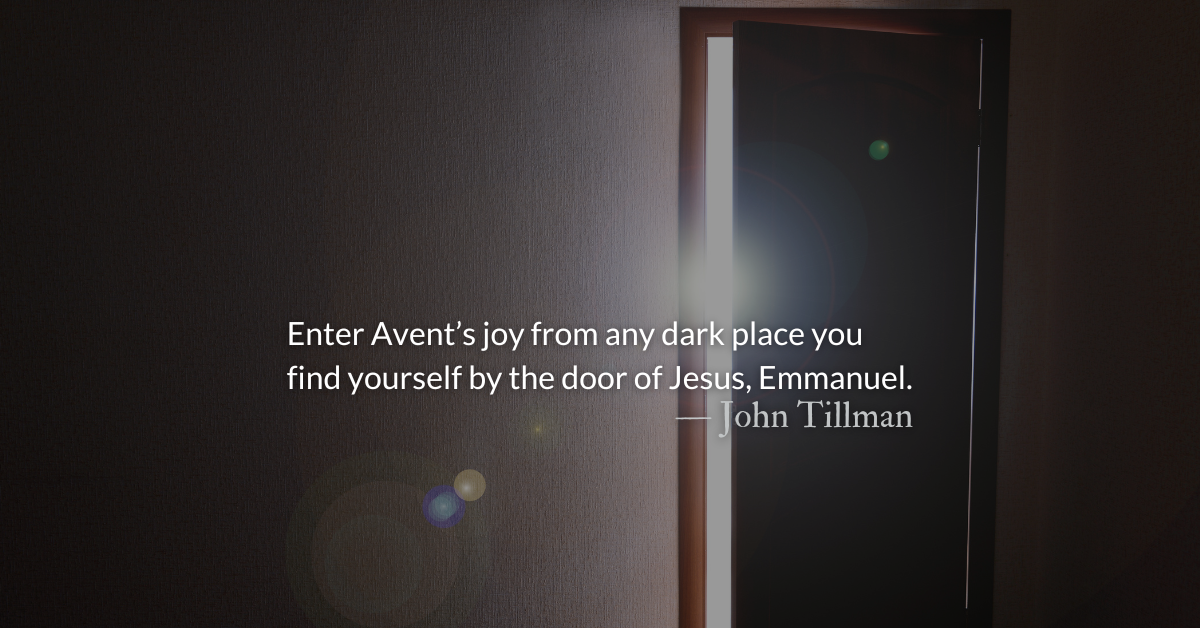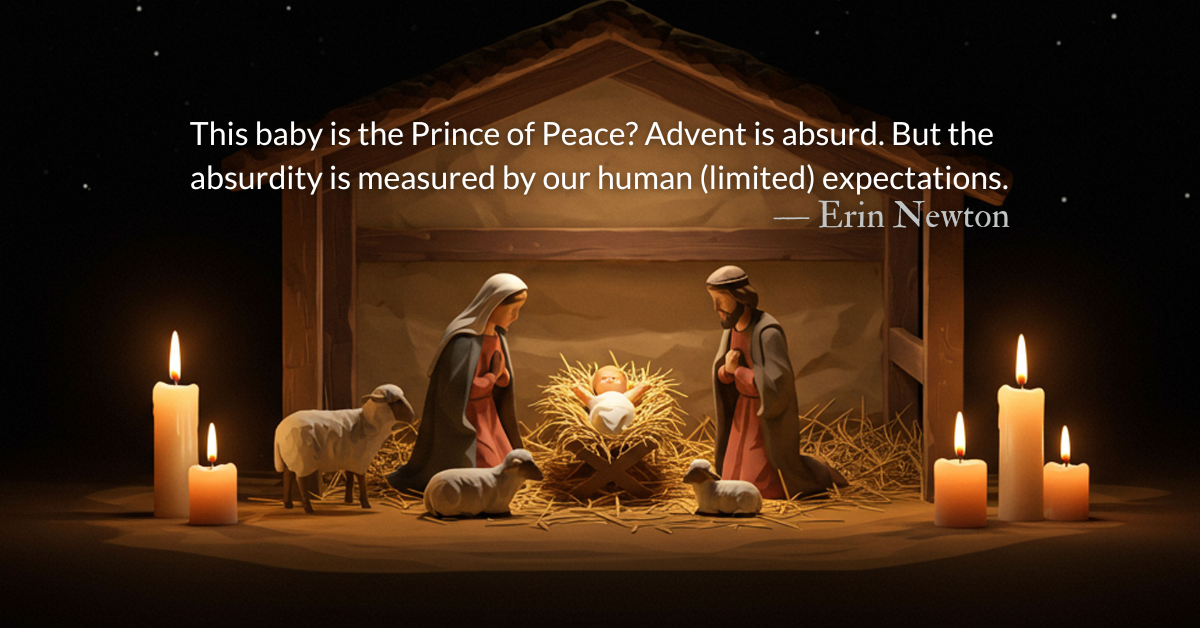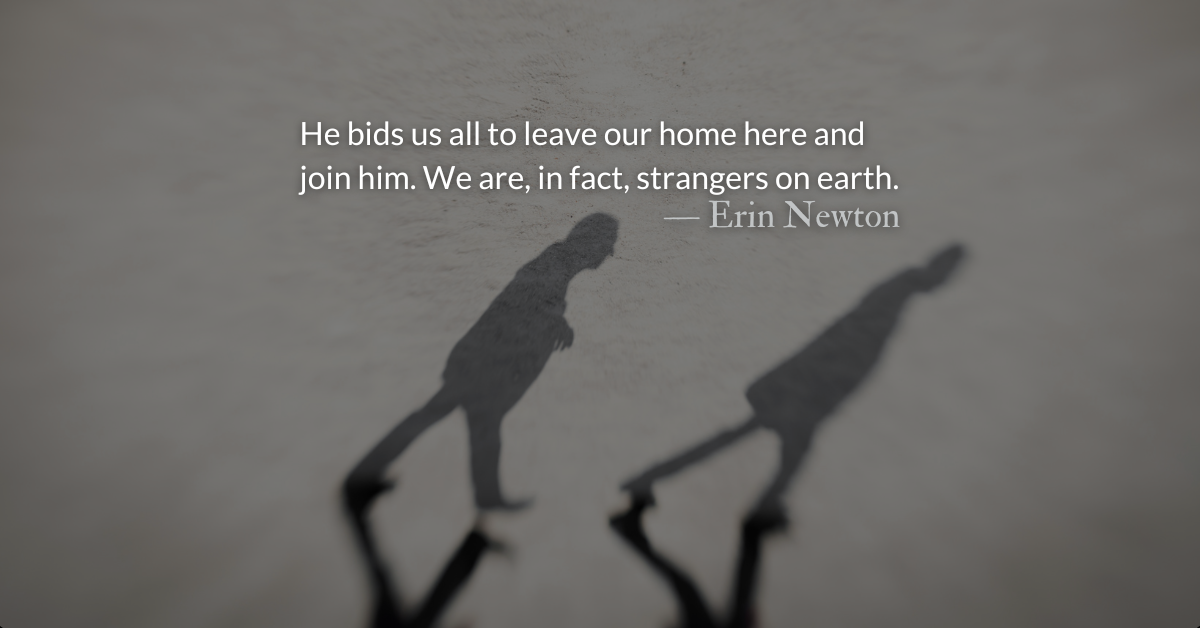Links for today’s readings:
Dec 15 Read: 2 Chronicles 17 Listen: (2:48) Read: Psalms 119.121-144 Listen: (15:14)
Scripture Focus: Psalm 119.121-128
121 I have done what is righteous and just;
do not leave me to my oppressors.
122 Ensure your servant’s well-being;
do not let the arrogant oppress me.
123 My eyes fail, looking for your salvation,
looking for your righteous promise.
124 Deal with your servant according to your love
and teach me your decrees.
125 I am your servant; give me discernment
that I may understand your statutes.
126 It is time for you to act, Lord;
your law is being broken.
127 Because I love your commands
more than gold, more than pure gold,
128 and because I consider all your precepts right,
I hate every wrong path.
Reflection: The Door to Joy — Joy of Advent
By John Tillman
How can we be joyful in the dark?
The psalmist makes a bold statement! God, you’re late.
It is time for God to show up, but the psalmist’s eyes fail waiting for God. It is time for God to destroy oppressors, but oppressors still stand, whip in hand. It is time for justice to fall on law-breakers, but the judge of all the earth seems to be holding his court in recess.
Moments of darkness can become moments of doubt. It is easy to become discouraged and disillusioned. How long, O Lord?
Like the psalmist, we see oppressors and law-breakers and systems of justice that seem inadequate or absent. Oppressors and law-breakers are, in some ways, unchanging. Every time and culture has criminals who break laws and the most literal form of oppression, slavery, still exists today. But the form and means of lawlessness and oppression change and adapt.
Oppressors today might use an algorithm instead of a whip or banking policies instead of chains. Law-breakers may use the legal systems intended to uphold the law to upend justice by enacting unjust laws or enforcing just laws through unjust means.
But oppression is not only outward; it is inward. We are oppressed individually by sinful temptations, addictions, tendencies, and desires. Sin pressures, prods, and pushes us towards lawless paths by small steps. As God warned the downcast Cain, Sin crouches at the door to pounce. (Genesis 4.7) If we do not master it, it will be our master. (Romans 6.16)
The psalmist resisted by leaning into love for God’s word. This makes him “hate every wrong path” and is how he held onto joy in the dark. Jesus is our door to enter Advent’s joy.
Joy may not be the first thing people think of when they think of Advent.
Many perceive Advent as somber and sober. We sit in the dark and light candles very slowly. (One a week!) Christmas is the party, the good gifts, the joyous celebrations. Avent is just the waiting. However, Advent is not a static and staid ceremony of somberness. Advent prepares us to party, but has joys all its own. Advent arms us with joy and light.
Joy thrives even in sunless realms. Christian joy is not based on temporal circumstances but on eternal realities of God’s character revealed in Jesus. Enter Avent’s joy from any dark place you find yourself by the door of Jesus, Emmanuel. (John 10.9)
Divine Hours Prayer: A Reading
Mary set out at that time and went as quickly as she could into the hill country to a town in Judah. She went into Zechariah’s house and greeted Elizabeth. Now it happened that as soon as Elizabeth heard Mary’s greeting, the child leapt in her womb and Elizabeth was filled with the Holy Spirit. She gave a loud cry and said, “Of all women you are the most blessed, and blessed is the fruit of your womb. Why should I be honored with a visit from the mother of my Lord? Look, the moment your greeting reached my ears, the child in my womb leapt for joy. Yes, blessed is she who believed that the promise made her by the Lord would be fulfilled.” — Luke 1.39-45
– From The Divine Hours: Prayers for Autumn and Wintertime by Phyllis Tickle.
Consider Supporting Our Work
Donor support is vital to our work and we are in need of more donors just like you. Please consider supporting our ad-free biblical devotionals.
Read The Bible With Us
When we read the Bible repetitively and reflectively, it gets deeply imbedded in our heart. Join our Bible reading plan and reflect on scripture at a sustainable, two-year pace.






